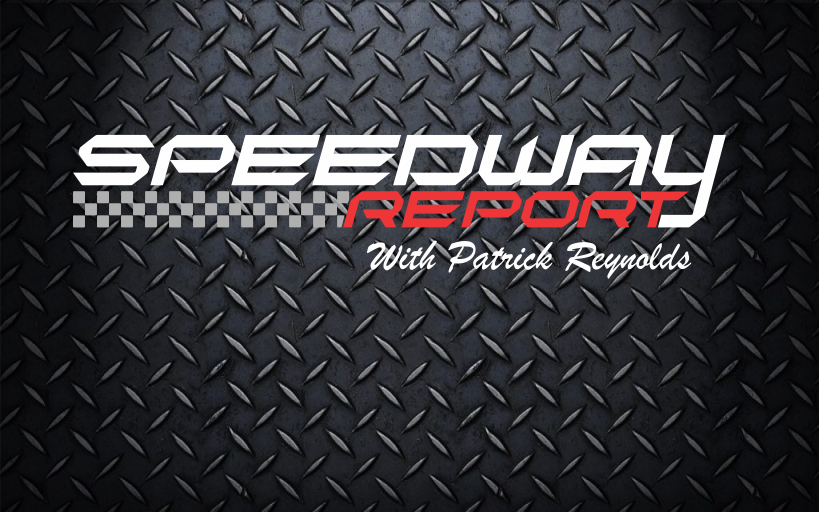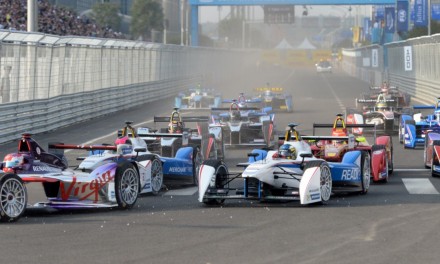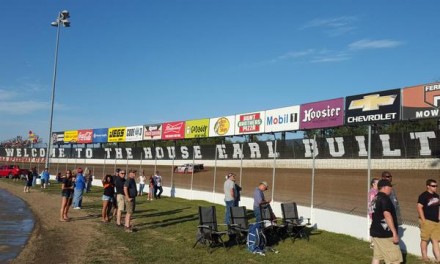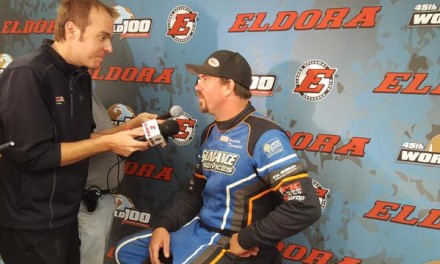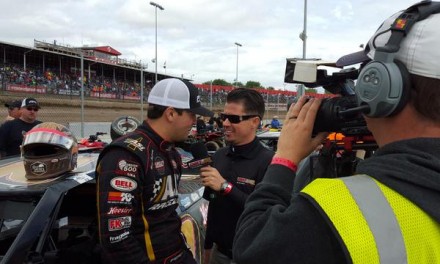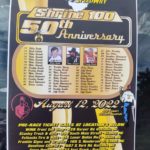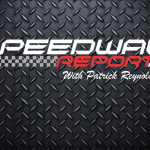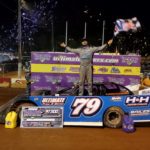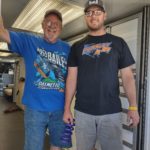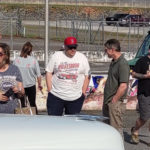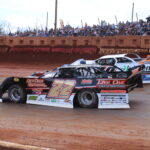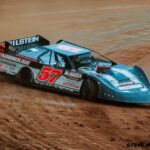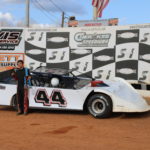Story and photo by Rhonda Beck
From The Dirt Track at Charlotte, to the Duel in the Desert in Las Vegas, and now on to this weekend’s Carolina Clash season finale in South Carolina, Chris Ferguson has already done a lot of racing and traveling this November. The Mount Holly, N.C. native talked about some of the year’s highlights, the importance of regional series, his history in dirt late model racing, and current and future growth in the sport.
Rhonda Beck: How are you?
Chris Ferguson: Good, just getting caught up on some stuff.
RB: Yeah, after the big trip to Vegas and back?
CF: Yeah, that was a blast. My sleep schedule was a little messed up, but I got used to it. We had a good time. We ran around the top five the first night and fell back late. We fell back to 10th. Then the finale, the $50,000 to win show, we started 11th and we had a good car. We drove all the way to fourth and then we had a tire detread. It basically came apart. A little frustrated that the tire came apart because it wasn’t a user error; it was a factory defect.
RB: Does that happen often?
CF: No, but the tires that we ran that weekend—they provided them. They were tires that the series and the track provided. And long story short, the rule was we weren’t going to run that tire at first and then they made that rule on Saturday.
RB: Well, you just make it known and hope it’s something that doesn’t happen in the future. Any other highlights that were not at the track, being in Las Vegas? Had you been there before? I saw your picture at Caesars Palace.
CF: Yeah, we had been there before. But it was a fun experience. Me, my brother (Brandon Conard) and Zack Smith, Jeff Smith’s son, all went out on the town. You know, we’re all kind of younger guys, so the very last night we all went out. We went to new Vegas, old Vegas and went down the strip and just had a great time. We were going to go to David Copperfield, but we didn’t get out of the races early enough.
RB: It was nice to see you at the World Finals in Charlotte and see you get 6th there. As far as this year, Tennessee has been good to you—you won the Bristol dirt race and did well at I-75 Raceway. Anything to comment on regarding those and other races?
CF: Probably the most, proud I am out of all of those, besides winning Bristol, is in the Dream. I ran 3rd in the finale on Saturday (at Eldora Speedway) and at the World (100) I ran 5th. I got 7th in the other World. So, to get three out of four top 7’s in the Dream and the World was pretty big this year. Not a lot of people are that consistent there besides Davenport and McCreadie. We’re right there in the hunt for winning those big ones. It’s cool to be that good, in my opinion, at the most notable dirt late model track in the world.
RB: Yeah, Eldora. So how many years have you been going there?
CF: Basically from 2019 to 2021, I’ve went for every Dream and World. Before that it was always sporadic. I’d go to the Dream and miss the World. I wasn’t consistently going there.
RB: You’re going to do the Carolina Clash series races this weekend. Many local people are excited that you’re back. Can you compare the two speedways—Lancaster and Cherokee? Do you use the same car? And how’s the set-up?
CF: Yeah, we will use the same car, but the two are really nothing alike. Lancaster is literally two long straightaways and two tight corners, while Gaffney is more sweeping, not as long of straightaways. We change things with our shocks and springs and gears, but we will run the same car because we’re pretty accustomed to running the same car everywhere.
RB: As far as reflecting back, in 2009 you won Rookie of the Year with Carolina Clash and it was one of the series you started in. Anything to say about the people that run that consistently and how it’s a good series for this area?
CF: It’s like I tell everybody, its’ when you have the regional series and you don’t have the funds to go run a big race, it’s nice to be able to go run for 4-$5000 in a 30-mile radius. Those series are needed. They’re needed for our sport. Not everyone can go run a World of Outlaws or Lucas Oil race. There are many super late model drivers that put on a show that just don’t have the full budget to go run a tour. So the Clash series comes in handy. For myself, I typically run all the crown jewels now and I run a good bit of the Lucas and some World of Outlaws races. I still will run 10-15 Ultimate (Super Late Model Series,) Carolina Clash, and Southern All Star races. It’s a healthy part of our sport, and it always draws a good crowd at your local track or at your regional track.
RB: Right. As far as the crown jewels, you read on the different sites and in the different discussions about ‘What does that mean?’ Obviously, the Dream, the World, the North/South 100 and some others are known as ones. But there may be new ones in the future. They just had that weekend at Senoia; that seemed like a really, nice race down there.
CF: To me, it has to be a high-paying race, number one, but that’s not the most important part. The most important part, in my opinion, is the atmosphere, the crowd. When you’ve got a place that’s slam-packed and the atmosphere is electric and it pays a high amount of money and everybody’s watching it, that’s what a crown jewel is. There’s a bunch of races that are starting to pay high and they don’t quite got the pizzazz that’s a crown jewel yet. The races like in Fairbury, IL. The Prairie Dirt Classic, five or six years ago wasn’t considered a crown jewel. Well now it is, because it pays $50,000 to win and the atmosphere is electric and it’s got Lucas Oil and World of Outlaw guys there and the Who’s Who is there.
RB: I agree. I did a little interview with Randy Clary at the World Finals and that was one of the season-ending big race weekends with the World of Outlaws and he talked about payout. He also said he really liked your throwback scheme, which was for Phil Nye, Jr. I don’t know how your schedule is going to be next year, but the 50th Annual Shrine 100 will be at Carolina Speedway. I think it’d be neat if drivers could do throwback schemes for that event.
CF: Oh, for sure. For a year at the Dirt Track World Championship, they did throwbacks. Like after (Mike) Duvall passed away, (Jonathan) Davenport ran the Flintstone Flyer scheme and guys like Darrell Lanigan, they all ran their throwback schemes which was super cool to do. I wish more people would get involved with that.
RB: So, going back to your beginnings, who were some specific drivers that really helped you get your start? People like Ricky Weeks, Jeff Smith, The McDowell brothers?
CF: Yeah, for sure. The big one that really comes to mind is Jeff Smith. You know, Jeff drove my hauler out to Vegas. Which was super cool, because Jeff was kind of the first person—well, truth be told, not Jeff, Doug Sanders. I kept my racecar in Doug Sanders’ shop the first year and a half that I raced. My dad’s sister Rose is married to Gene Sanders, which is Doug’s brother. When I first started, we leaned a lot on Doug. And Jeff Smith. We bought parts from Jeff Smith. They’re the guys that really kind of pointed us in the right direction. And naturally I listened to everything that Ricky Weeks said, that Petey Ivey said. Once I started going out and racing a little more and I switched to Bloomquist cars, it was Dale McDowell and Scott Bloomquist. But as far as the very beginning, I’d say Doug Sanders and Jeff Smith were the two that really helped me and my dad learn everything.
RB: And as far as the new people, any advice for them? I talked with Tony (Ferguson) and your cousin Carson is running the super for the first time and Donald and Gena Bradsher are helping with that. Reflect back on your start in racing.
CF: Well, l I think Carson is in the right scenario and not everyone’s going to be able to get in the right scenario. The hardships that I kind of learned wasn’t what everybody did. I had sponsors, but I didn’t have the help that I really needed to race supers until the last two or three years. It’s been a financial strain on my dad and my family for a long time. So, my advice to everybody is that you have to really decide if it’s really worth it to you to have that strain. And to race within your means. Like there were times we probably didn’t need to do stuff and we did it because we felt we had to race. Looking back, I wish we would have made a little better decisions.
RB: Yeah, I think we all learn that throughout life. You did your best at that moment, and you always can learn something from it.
RB: And the technology to get things out there on social media, plus the different streaming broadcasts have really helped people have better access. Anything to say about that?
CF: Yeah, it’s cool to see our sport advance right in front of our eyes. I think that the broadcasts and people—Austin Dillon, Kyle Larson—outside people coming into the sport, have really drawn some attention. I’ve got so many friends racing NASCAR and in other forms of racing that keep up with a FloRacing account or an XR account.
RB: Anything else you want to say?
CF: I don’t know where the ceiling is. I think we could be racing every weekend, you know, on a nationally televised event. It could happen in the next five years. Our sport, in my opinion, is just as exciting if not more exciting than NASCAR. I think that at some point it may be on TV every week.

